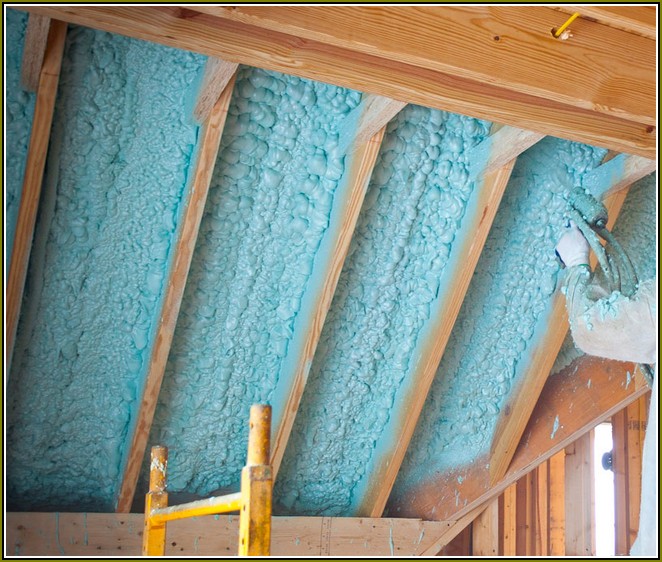Indoor air quality (IAQ) is a vital aspect of a healthy home environment. Many homeowners may not realize that insulation plays a significant role in maintaining good IAQ. One effective solution is closed cell spray foam insulation. This article explores how this type of insulation can enhance indoor air quality, making your home a safer and more comfortable place to live.
Understanding Closed Cell Spray Foam
Closed cell spray foam insulation is a type of insulation made from a mixture of isocyanates and polyols. When sprayed into place, it expands and forms a solid barrier that adheres tightly to surfaces. This insulation type not only provides thermal resistance but also creates an airtight seal, minimizing air leakage and preventing outdoor pollutants from entering your home.
The Importance of Indoor Air Quality
Indoor air quality is influenced by various factors, including the presence of allergens, pollutants, and humidity levels. Poor IAQ can lead to health issues such as respiratory problems, allergies, and overall discomfort. It’s essential to take measures to improve IAQ, and one effective way is through proper insulation.
How Closed Cell Spray Foam Enhances IAQ
1. Reduces Air Leakage
Closed cell spray foam insulation forms a tight seal around walls, ceilings, and other surfaces. This barrier prevents outside air from infiltrating your home, which can carry dust, pollen, and other allergens. By minimizing air leakage, it helps maintain a stable indoor environment, reducing the chances of health-related issues.
2. Prevents Moisture Buildup
Moisture is a significant contributor to poor indoor air quality. High humidity levels can lead to mold and mildew growth, which can cause serious health problems. Closed cell spray foam has moisture-resistant properties, helping to keep humidity levels in check. This ensures a healthier living space, free from mold and related health risks.
3. Improves Energy Efficiency
An energy-efficient home is not only better for the environment but also improves indoor air quality. By providing superior insulation, closed cell spray foam helps regulate indoor temperatures. This reduces the strain on heating and cooling systems, leading to less air exchange with the outside and ultimately maintaining cleaner air indoors.
4. Filters Out Pollutants
Some closed cell spray foam products are designed with additional features that help filter out pollutants. These products can reduce the amount of volatile organic compounds (VOCs) and other harmful substances in your home. By using these advanced insulation options, you can significantly improve your home’s IAQ.
Additional Benefits of Closed Cell Spray Foam
While improving indoor air quality is a major advantage, closed cell spray foam offers several other benefits as well.
1. Sound Dampening
The dense structure of closed cell spray foam provides excellent sound dampening qualities. This means that not only can it keep outdoor pollutants out, but it can also minimize noise from outside, creating a more peaceful indoor environment.
2. Increased Structural Integrity
Closed cell spray foam adds strength to the structures it insulates. By reinforcing walls and roofs, it enhances the overall integrity of the building, making it more durable and long-lasting. This can prevent issues that may arise from weakened structures, which could lead to further air quality problems.
3. Long-Term Cost Savings
Investing in closed cell spray foam insulation can lead to long-term savings. By improving energy efficiency and reducing the need for extensive heating and cooling, homeowners can save significantly on utility bills. Additionally, fewer repairs and replacements are needed over time, making it a cost-effective choice.
FAQs About Closed Cell Spray Foam and Indoor Air Quality
- How does closed cell spray foam compare to other insulation types?
Closed cell spray foam provides superior air sealing and moisture resistance compared to traditional insulation materials like fiberglass. It also offers better thermal performance.
- Can closed cell spray foam help with allergies?
Yes, by reducing air leaks and preventing moisture buildup, closed cell spray foam can help alleviate allergy symptoms by minimizing exposure to outdoor allergens and indoor mold.
- Is closed cell spray foam safe for indoor use?
When installed correctly by professionals, closed cell spray foam is safe for indoor use. It’s essential to allow the foam to cure properly to minimize any potential off-gassing.
- How long does closed cell spray foam last?
When installed properly, closed cell spray foam can last for decades without needing replacement, making it a long-term solution for insulation and air quality improvement.
- How can I find a professional to install closed cell spray foam?
Look for qualified professionals who specialize in spray foam insulation. Research local providers, check reviews, and ask for recommendations to ensure quality installation.
Conclusion
Improving indoor air quality is crucial for creating a healthy home environment. Closed cell spray foam insulation not only enhances energy efficiency but also plays a significant role in maintaining clean, safe air indoors. If you’re interested in making your home healthier and more comfortable, consider reaching out to East Coast Foam at (854) 212-8830. They proudly serve Beaufort, SC, and the surrounding areas, including Bluffton, Edisto, Hampton County, Hilton Head, Lady’s Island, and Savannah.









